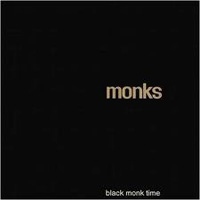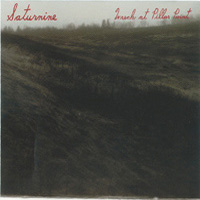 Jerry Seinfeld
Jerry Seinfeld
“I’m Telling You for the Last Time” (Outpost)
by Nik Rainey
To my knowledge, no one’s ever noted this before, but to me it’s quite obvious: Larry David and Jerry Seinfeld were the Lennon/McCartney of comedy. Consider the evidence: two men, the cute, vapid one and the dark, moody one who favored round glasses, rose from semi-obscurity and combined their distinct talents to take a moribund art form (sitcoms being about as revolutionary as skiffle bands when they came along) and jolt it awake with an artistry as deceptively offhanded as it is irreplicable. They had the hooks to snag the teeming, screaming multitudes (“Yeah yeah yeah” = “Yada yada yada”) but their melodies were layered and subtle enough for the scholars to appreciate. As a result, they progressed as they soldiered on, opened up the format to ideas and concepts once considered unthinkable and still the mass audience followed, inaugurating a new era in its medium, a sophisticated, urbane sensibility to be both used and abused by all who followed. (I’m not sure whether this makes Friends the Rolling Stones or the Dave Clark Five, but I’m pretty certain The Single Guy was Herman’s Hermits. Or maybe Chad and Jeremy.) A cursory glance at the Nielsens should show that they were more popular than Jesus. (You may laugh, but tell me – if He had decided to come back at 9:00 on any Thursday night in the past five years, would you have known it?) And, of course, a guy named George figured in there somewhere.
 Inevitably, like their Liverpudlian counterparts, NBC’s Fab Two had to part ways and follow their respective muses to their logical destinations. David hasn’t been consorting with any Asian avant-gardists to the best of my knowledge, but he did make his Plastic Ono Band in the form of the aptly-named Sour Grapes, a raw, bitter Janovian shriek of a movie which took the comic format he helped popularize to its darkest extremes (for example, where the series could only allude to masturbation, Grapes featured a character explicitly skilled in the art of autofellatio – David takes some liberties with reality, however, as the character does occasionally leave the house), a declaration of independence from the trappings of success that was clearly very successful in its goals, as nobody went to see it. Conversely, without his lacerating vision of the existential horrors of the banal to gouge holes in Seinfeld’s Teflon, the last two, David-free seasons of Seinfeld were about as reflexively well-crafted and ultimately meaningless as Wings albums. (Really good Wings albums, granted, but c’mon, would you choose Band on the Run over Revolver?) And of course, they finished off the legend this past spring by participating in a reunion as massively hyped and as crashingly disappointing as “Free As A Bird” (and David didn’t even have the good sense to be many years dead at the time). The dream is over. See you in syndication.
Inevitably, like their Liverpudlian counterparts, NBC’s Fab Two had to part ways and follow their respective muses to their logical destinations. David hasn’t been consorting with any Asian avant-gardists to the best of my knowledge, but he did make his Plastic Ono Band in the form of the aptly-named Sour Grapes, a raw, bitter Janovian shriek of a movie which took the comic format he helped popularize to its darkest extremes (for example, where the series could only allude to masturbation, Grapes featured a character explicitly skilled in the art of autofellatio – David takes some liberties with reality, however, as the character does occasionally leave the house), a declaration of independence from the trappings of success that was clearly very successful in its goals, as nobody went to see it. Conversely, without his lacerating vision of the existential horrors of the banal to gouge holes in Seinfeld’s Teflon, the last two, David-free seasons of Seinfeld were about as reflexively well-crafted and ultimately meaningless as Wings albums. (Really good Wings albums, granted, but c’mon, would you choose Band on the Run over Revolver?) And of course, they finished off the legend this past spring by participating in a reunion as massively hyped and as crashingly disappointing as “Free As A Bird” (and David didn’t even have the good sense to be many years dead at the time). The dream is over. See you in syndication.
So where does that leave Seinfeld, an artist who’s already achieved the loftiest goals he could possibly have set for himself, now that he’s finished the defining project of his life and has nothing better to do with his time than break up a few marriages and figure out what percentage of the quarter-billion dollars he’s pulled in this year is going to cereal? Right back to where he started from, of course – try and regain a little of that fresh-faced, rosy-cheeked innocence he once knew. And since scheduling conflicts put the kibosh on a Benson reunion, he took an exodus straight back to his genesis: the first, chunky riffs he honed through hundreds of hours’ practice in his own personal Cavern Club (Cavern Club, Chortle Barn – six of one…): his stand-up routine.
As it happens, “routine” is an apt description of what Seinfeld provides on this disc. It’s not that I’m Telling You For the Last Time isn’t funny; of course it is – Jer’s a pro, after all, and the fact that practically everyone in America knows this stuff so well that I bet there’s a karaoke version of this, doesn’t change the fact that a good bit is a good bit, any more than a billion piano-bar automatons have made “Yesterday” a bad song. The thing that amazes, which speaks highly for the virtues of collaboration as a kind of comedic checks-and-balances situation, is how conventional a stand-up Seinfeld is, something that may not be readily noticeable in the context of a billion open-mike observatrons gesticulating interchangeably in front of a billion identical brick walls, but it sure as hell stands out when you’re shelling out coin better suited to Carnegie Hall than the Carnegie Deli, and it can’t be missed when it’s immortalized on CD.
You’ve got to wonder a little bit at the point of this whole endeavor, other than the obvious one – namely, that he can. Everything about this album – from the track listing, which reads like the set list of every yuk-hack who’s ever scammed a 12:30 slot at the Improv (“Cab Drivers,” “Air Travel,” “Supermarkets,” “McDonalds”) to the defiantly retrograde, PG-rated tone of it all – is a full-bodied throwback to a simpler era when comics were merely comic and nothing more. Admittedly, it’s kind of refreshing in this day and age to see a stand-up who refuses to work “blue” (other than about four “goddamn”s, there’s absolutely nothing here that can’t – and probably hasn’t – run on prime-time network TV), but cleanliness of language extends to a rather antiseptic tone throughout – when the angriest and most passionate moment in a comic’s routine is the part where he rants that “there are no chicken in the sea!”, you get the impression that this is a guy who hasn’t suffered much angst in his life. Which is jarring, especially since Seinfeld (the series) distinguished itself with the most angsty cast of characters in sitcom history, which in retrospect was obviously Lennon’s – I mean, David’s – doing. Then again, any true student of Seinfeldiana could tell you that, in a show whose characters were built never to mature, Jerry’s was the only one who appreciably changed over the course of nine seasons, and not for the better, either – his fastidiousness, shallowness, and general removal from the insanity that surrounded him, the very aspects which cast him as the “normal” one at the outset, grew over time to take up a space somewhere between neurosis and psychosis, until, by the end, he was just as venal, obsessive, and absurdly eccentric as the other three.
So maybe the best thing to do with this album, in this post-Pirandellan (or at least post-Larry Sanders) age of meta-comedy, is to go full-tilt pomo and think of it as the work of Jerry Seinfeld the semi-obscure, quasi-fictional stand-up comedian rather than Jerry Seinfeld the over-wealthy, super-self-satisfied mega-celeb. Try it: I guarantee you these facile, familiar quips will take on new dimensions (more than one, anyway) and that smirk, that constricted whine of incredulity, that obsession with the utterly commonplace will reveal themselves as the hints of incipient psychosis you’ve come to expect from comic geniuses and your laughter will gain traces of pity to go with the why-that-guy? Jealousy that’s already there and you’ll be able to relax and enjoy this album a hell of a lot more. (Like Ritalin, a stimulant that actually manages to calm kids’ hyperactivity, so, too, do we need a touch of tension to help our art go down easily these days.) I wouldn’t advise you attempt that with any of McCartney’s stuff, however – get with it, man, I abandoned that analogy paragraphs ago.
(2220 Colorado Ave. Santa Monica, CA 90404)



